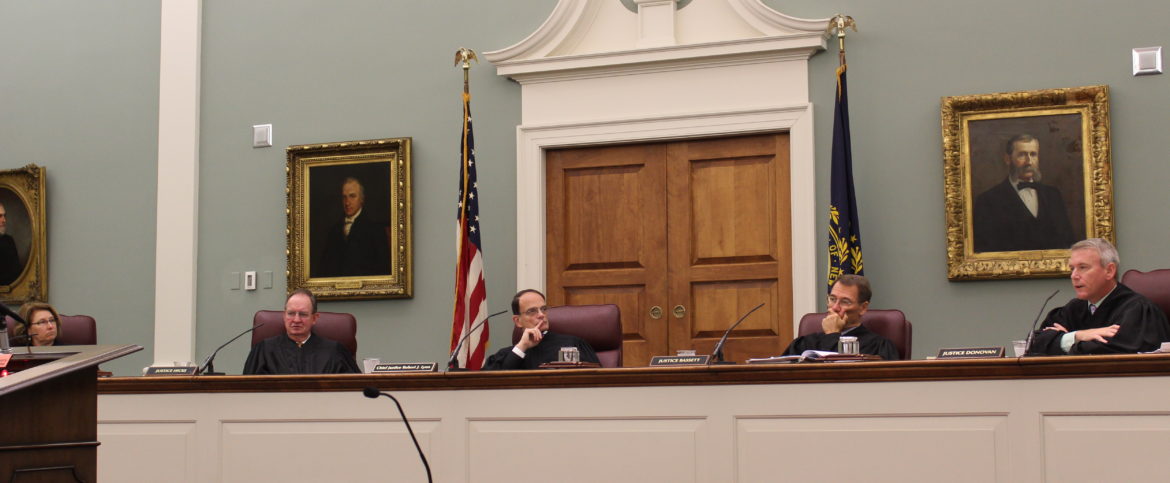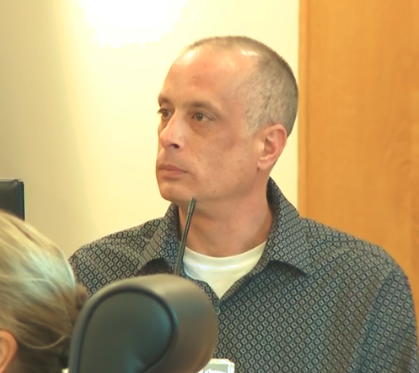By Nancy West, InDepthNH.org
A controversial new voter registration law requiring proof of domicile will remain in effect until at least after the Nov. 6 midterm elections as the state Supreme Court ruled late Friday afternoon that it’s too late to turn back now.
Justices stayed a preliminary injunction against the law, commonly called SB3, that was issued Monday by Hillsborough County Superior Court Judge Kenneth Brown. The Supreme Court expressed no opinion on the merits of the challenge.
“However, the court is persuaded that, regardless of the merits, the timing of the preliminary injunction, entered by the trial court a mere two weeks before the November 6 election, creates both a substantial risk of confusion and disruption of the orderly conduct of the election, and the prospect that similarly situated voters may be subjected to differing voter registration and voting procedures in the same election cycle,” Supreme Court Chief Justice Robert Lynn wrote, with the other justices concurring.
The law was intended to change how New Hampshire voters substantiate their domicile when registering to vote, according to the state’s motion challenging Brown’s ruling.
“SB 3 was intended to limit the circumstances in which new registrants could rely on an affidavit alone to establish their domicile,” the motion states. And modified the voter registration process by requiring new registrants to provide evidence of a “verifiable act of domicile” where possible.
“Requiring such a ‘verifiable act’ would reduce the instances where the local election officials are asked to take the registrant ‘at his or her word’ through an affidavit in which the affiant simply asserts his or her domicile, as reliance on such a bare representation creates an opportunity for voter fraud,” the motion states.
Confusion over what citizens will need to do to register to vote before or on election day under the new law has been back and forth in the courts since Monday.
SB3 requires people registering to vote within 30 days of an election to fill out a new form to prove they live where they intend to cast their ballot. Under the previous law, people registering to vote had to show proof of identity, age, residence, and citizenship or sign an affidavit attesting to those facts.
The lawsuit, which was filed by the League of Women Voters of New Hampshire and the Democratic party against Secretary of State William Gardner and Attorney General Gordon MacDonald, argues the law is overly complicated, burdensome and targets certain groups of people such as college students. It could also target homeless people, they say.
The state argued the law is needed to cut down on voter fraud and people voting in New Hampshire who live in other states.
In Monday’s order, Judge Brown wrote that the League had demonstrated they would likely succeed on the merits claiming that SB3 unconstitutionally burdens the right to vote.
“Where the law threatens to disenfranchise an individual’s right to vote, the only viable remedy is to enjoin its enforcement,” Brown wrote.
Deputy Secretary of State David Scanlan said: “We’re trying to make sure everything goes smoothly on the day of the election. There are a lot of moving parts we are dealing with…”
Scanlan said only about 10 percent of people will register during that timeframe of the estimated half million New Hampshire voters.
And it would be a small subset of that number that would be unable to provide documentation of where they live with documents such as a lease or their name on their driver’s license.
With only 15 days until the midterm elections, Brown wrote that the League had demonstrated they would likely succeed on the merits claiming that SB3 unconstitutionally burdens the right to vote.
“Where the law threatens to disenfranchise an individual’s right to vote, the only viable remedy is to enjoin its enforcement,” Brown wrote.
Brown wasn’t convinced by the state’s arguments regarding voter fraud.
“Given the extraordinarily low rate of documented voter fraud in this state, it is far more likely that more legitimate voters will be dissuaded from voting than illegitimate voters will be prevented,” Brown wrote.
Ray Buckley, chairman of the Democratic party, said: “This ruling is a setback for New Hampshire’s electoral integrity, but it also highlights just how important it is for all eligible Granite State voters to make their voices heard on Election Day. We will have resources in the field to assist any voters confused by this unconstitutional law.
“On November 6th, let’s make sure that regardless of any restrictive legislation, we all turn out and elect legislators who recognize the right to vote as the foundation of our democracy and will fight to protect it.”





